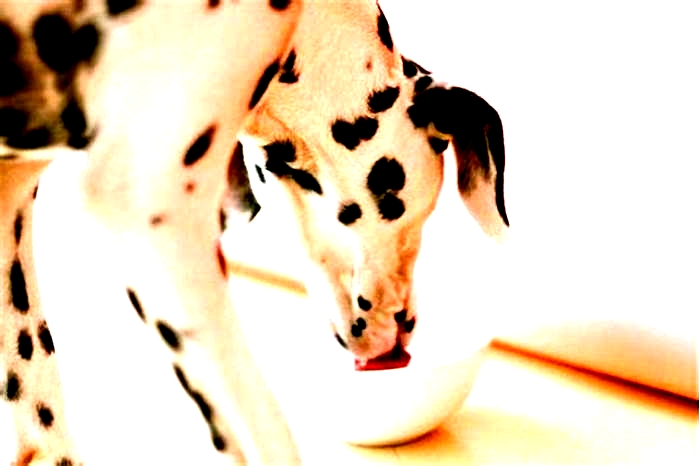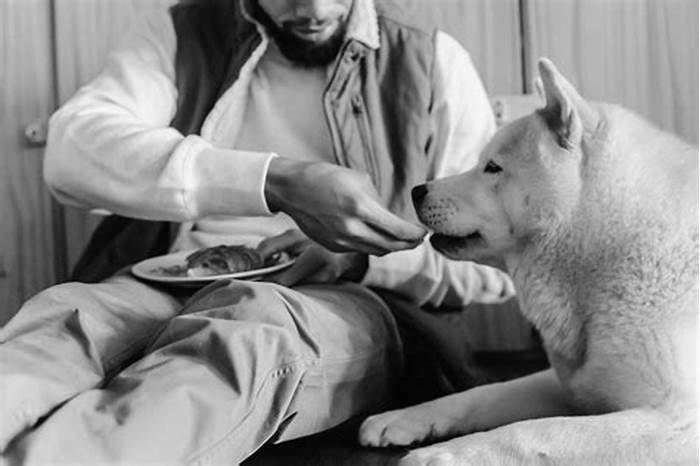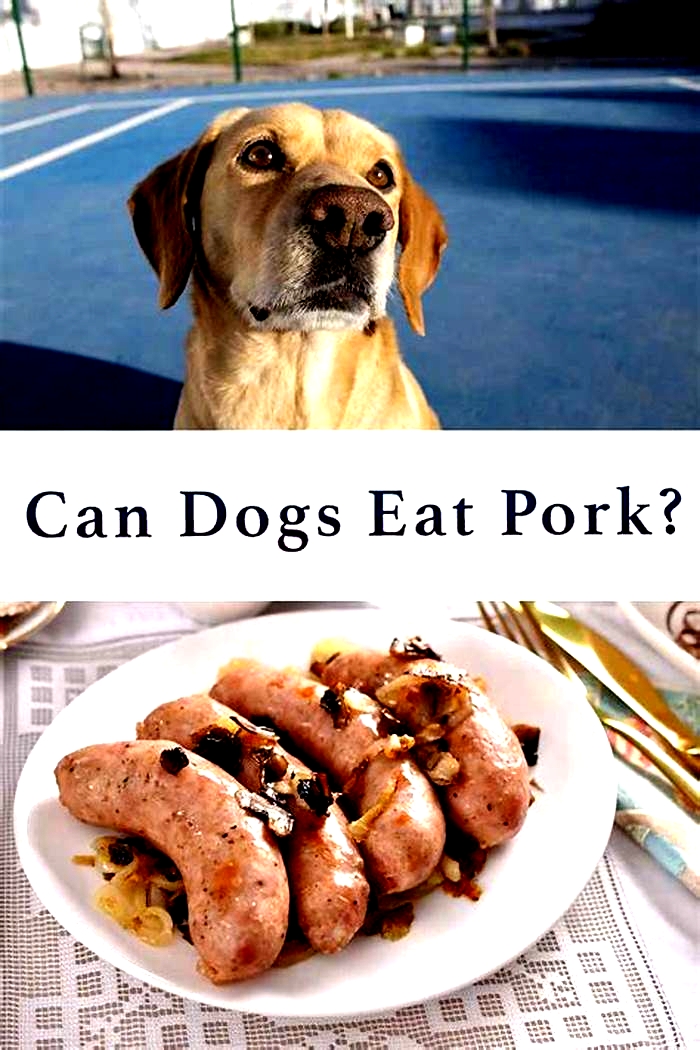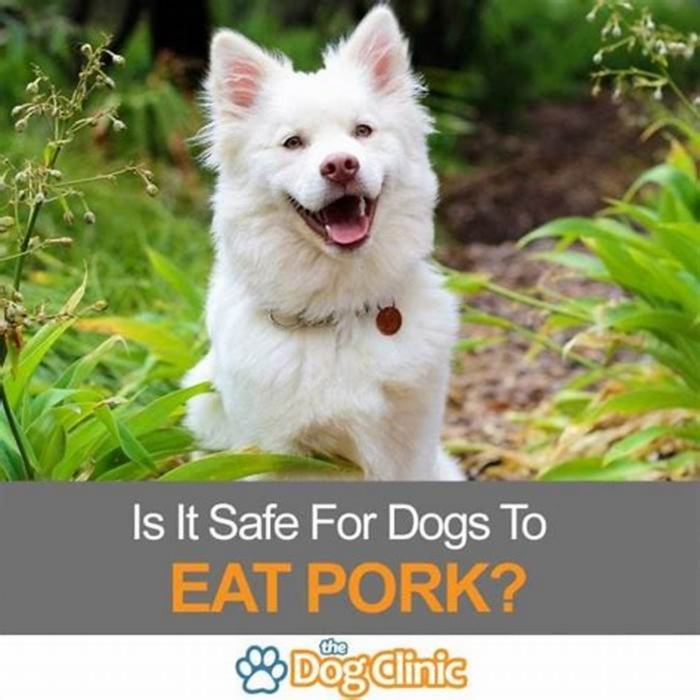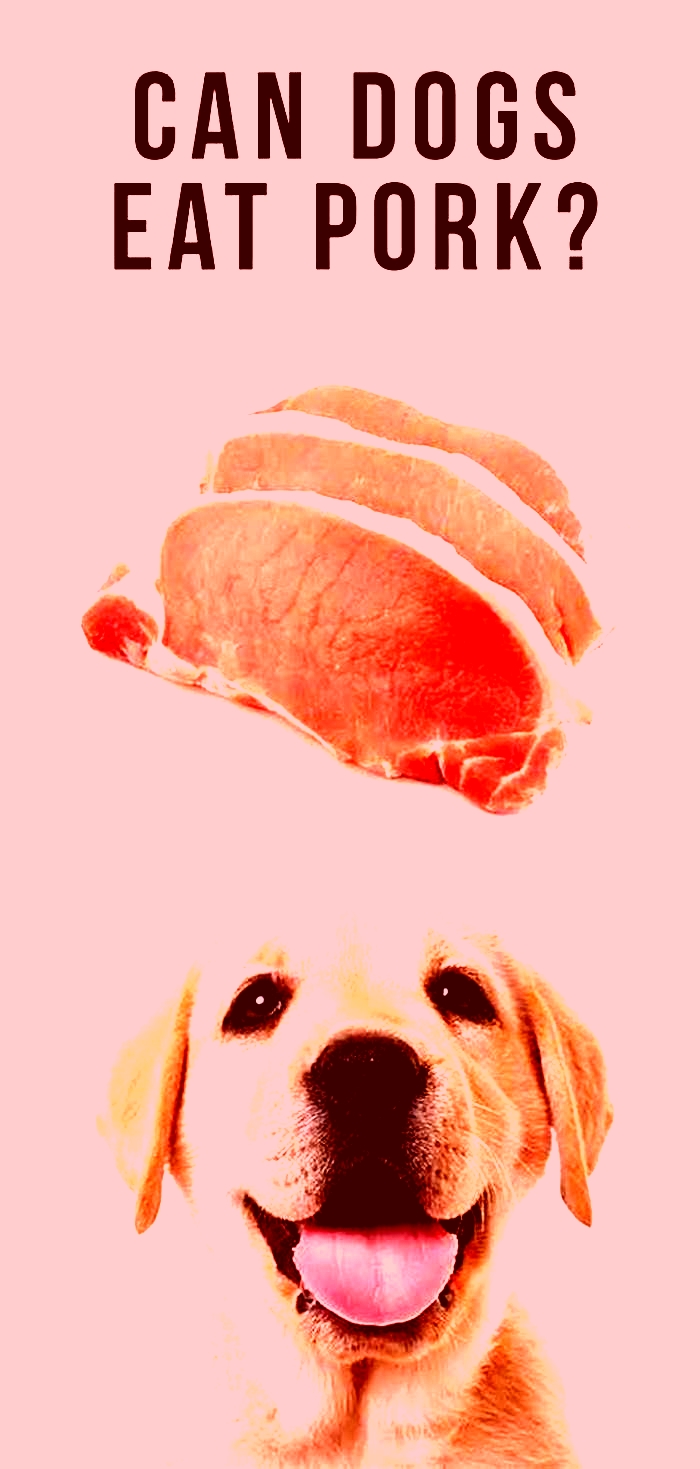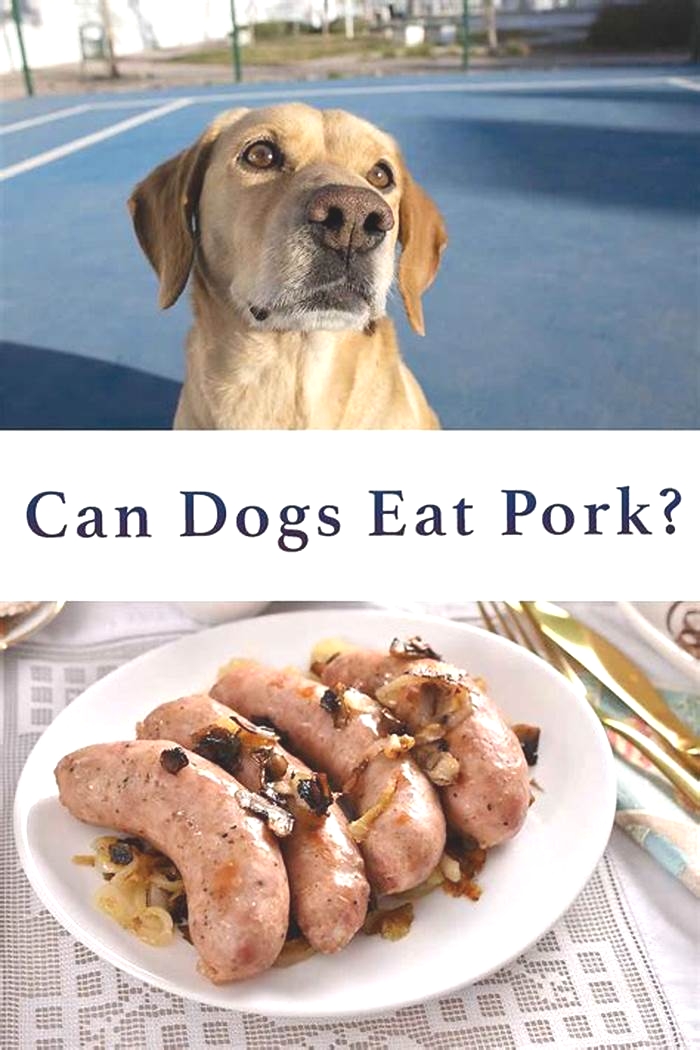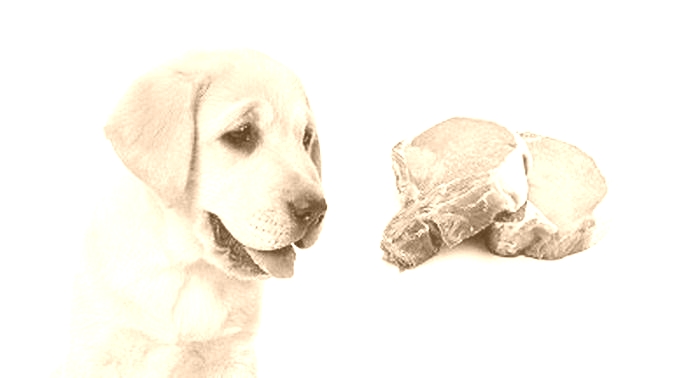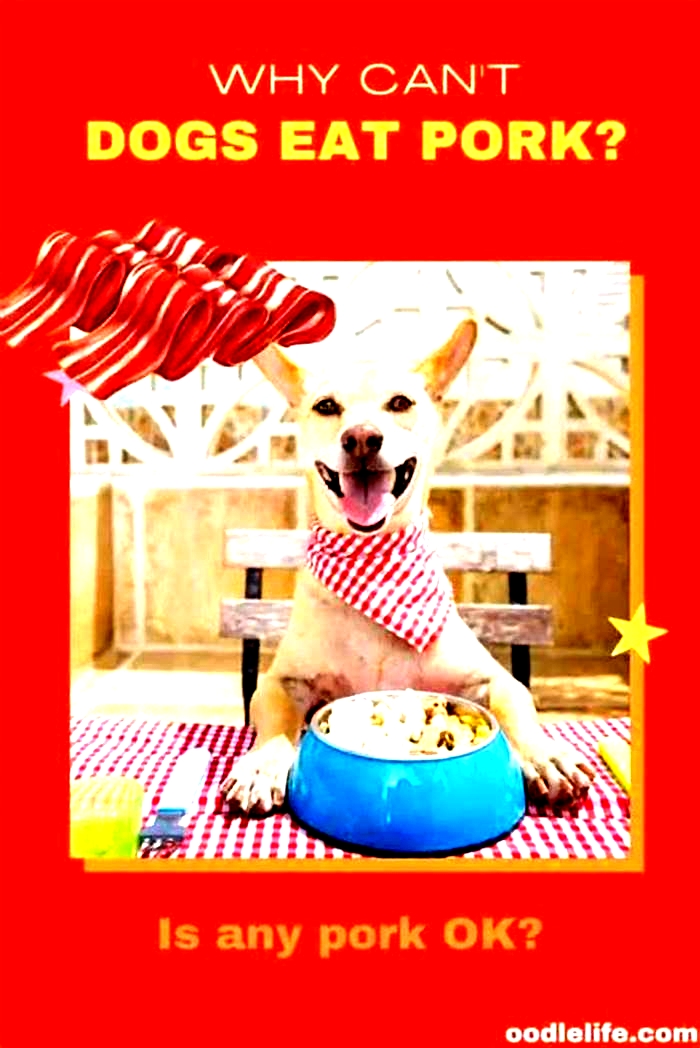What happens if a dog eats pork bones
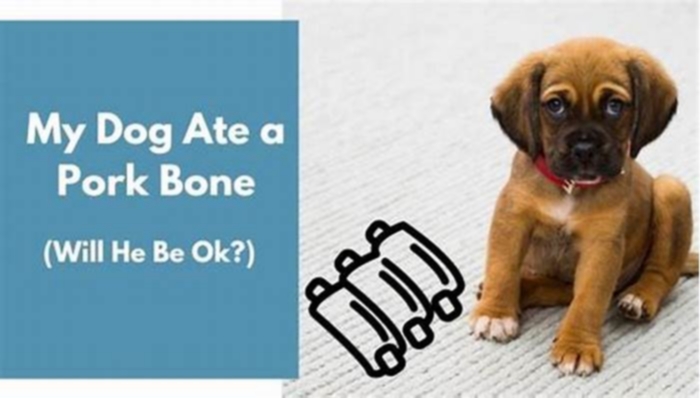
My Dog Ate A Pork Rib Bone: What You Should Do Next
If your dog ate a pork rib bone, you may be wondering what to do next. While pork rib bones may seem like a tasty treat for your furry friend, they can actually pose serious health risks. If your dog has eaten a pork rib bone, its important to act quickly to prevent any potential complications.
Understanding the dangers of pork rib bones is crucial for any dog owner. These bones can splinter and break, causing serious damage to your dogs digestive system. Signs your dog may be in distress include vomiting, diarrhea, and difficulty passing stool. If you notice any of these symptoms, its important to seek veterinary care immediately.
What should you do if your dog eats a pork rib bone? The first step is to contact your veterinarian for advice. Depending on the severity of the situation, your vet may recommend inducing vomiting or performing surgery to remove the bone. To prevent future incidents, its important to keep pork rib bones and other dangerous items out of your dogs reach.
Key Takeaways
- Pork rib bones can pose serious health risks for dogs.
- Signs of distress include vomiting, diarrhea, and difficulty passing stool.
- Contact your veterinarian immediately if your dog eats a pork rib bone.
Understanding the Dangers of Pork Rib Bones
Risk of Choking and Splintering
Pork rib bones pose a significant choking hazard to dogs. The bones can easily splinter into sharp pieces, which can cause serious internal injuries or even death. According to the American Kennel Club, pork bones are among the most dangerous bones for dogs to chew on. If your dog has ingested a pork rib bone, it is crucial to monitor their behavior and seek veterinary care immediately if they show any signs of distress.
Potential for Bacterial Infections
Pork rib bones can harbor dangerous bacteria, such as Salmonella and E. coli, which can cause severe illness in dogs. These bacteria can be present on the bone itself or on the surface of the meat. If your dog ingests a pork rib bone, they are at risk of developing a bacterial infection. Symptoms of a bacterial infection may include vomiting, diarrhea, and lethargy. It is essential to seek veterinary care if you suspect your dog has a bacterial infection.
Threat of Internal Damage
Pork rib bones can cause significant internal damage to dogs. The sharp splinters can puncture the digestive tract, causing internal bleeding and infection. In severe cases, the bones can even perforate the stomach or intestines, requiring emergency surgery. If your dog has ingested a pork rib bone, it is crucial to monitor their behavior and seek veterinary care immediately if they show any signs of distress.
According to a study published in Science Direct, it is essential to understand the nutrition and food safety of pork, including the hazards of eating meat from sick pigs. Another study published in Springer suggests that food controversies, such as the safety of pork, can impact food system fragility and resilience. It is crucial to be aware of the potential dangers of pork rib bones and take steps to keep your dog safe.
Signs Your Dog May Be in Distress
Physical Signs
If your dog ate a pork rib bone, you may notice some physical signs of distress. Vomiting, diarrhea, and bloody stool are all possible symptoms of a blockage caused by bone ingestion. Your dog may also experience abdominal pain, discomfort, and weakness. If you notice any of these symptoms, it is important to seek veterinary care immediately.
Behavioral Changes
In addition to physical symptoms, your dog may exhibit behavioral changes if they are in distress. Lethargy, lack of appetite, and pacing are all possible signs that your dog is not feeling well. They may also drool excessively or show signs of discomfort when trying to defecate. If you notice any of these changes in your dog, it is important to take them to the vet as soon as possible.
Its important to note that not all dogs will exhibit these symptoms if they eat a pork rib bone, but its always better to err on the side of caution. If you suspect your dog has eaten a bone, monitor them closely for any signs of distress and seek veterinary care if necessary.
Source: AKC
What to Do If Your Dog Eats a Pork Rib Bone
Immediate Actions
If your dog eats a pork rib bone, act fast. Check your dogs mouth and throat for any signs of choking or blockage. If your dog is choking, try to remove the bone with your fingers. If you cant, perform the Heimlich maneuver.
When to Contact a Veterinarian
If your dog starts vomiting, has diarrhea, or appears to be in pain, contact your veterinarian immediately. Internal bleeding can occur if the bone has punctured the stomach or intestines.
Possible Medical Interventions
Your veterinarian may recommend monitoring your dogs behavior and symptoms for a few days. If the bone hasnt passed, they may recommend endoscopy or surgery to remove it.
Remember, prevention is key. Avoid giving your dog bones, especially pork rib bones, which can easily splinter and cause harm. Keep an eye on your dog and contact your veterinarian if you suspect they have eaten something they shouldnt have.
Source: PetMD
Preventing Future Incidents
Proper Diet and Chewing Alternatives
To prevent future incidents of your dog eating a pork rib bone, it is important to provide them with a proper diet and safe chewing alternatives. Raw or cooked meat, including rib bones, can pose a choking hazard or cause other health issues. Instead, consider offering your dog safer chewing options such as chew toys or bully sticks.
Dry food is another safe alternative that can help your dog maintain healthy teeth and gums while satisfying their chewing needs. Avoid giving your dog bread or other human foods that can cause digestive issues or blockages.
Training and Supervision Tips
Proper training and supervision can also prevent future incidents. Teach your dog to chew on safe toys and discourage them from chewing on inappropriate items. Supervise your dog when they are chewing to ensure they are not swallowing large pieces or bone fragments.
If you must give your dog bones, make sure they are large enough to prevent swallowing and do not splinter easily. Avoid giving your dog chicken bones as they can easily break and cause harm.
Guidelines for Safe Chewing
When giving your dog bones or other chew toys, follow these guidelines to ensure safe chewing:
- Choose bones or toys that are appropriate for your dogs size and chewing habits
- Monitor your dog while they are chewing to ensure safe swallowing and breathing
- Discard bones or toys that become too small or start to crack
- Provide your dog with plenty of fresh water to aid in digestion
By following these guidelines and providing your dog with safe alternatives, you can prevent future incidents and keep your dog healthy and happy.
My name is Danny Jackson and Im the CEO and Chief Editor behind Petloverguy.com. After spending a decade working with vets and private clients as an animal behavioral and nutritional specialist I co-founded Pet Lover Guy to help other pet parents learn how to interact with, and make the most of the time that they spend with their adopted and rescued best pet friends.Working with Ella, our chihuahua rescue, we seek to help all dog and cat lovers have the happiest life possible.
Can Dogs Eat Pork Bones?
When you finish up your pork chop, is it okay to give your dog the bone? The answer is no. A pork bone actually might be dangerous for your dog to consume.
Why Arent Pork Bones Safe for Dogs?
Pork bones, whether raw or cooked, are likely to splinter and crack when your dog chews on them. Your dog might attempt to swallow small pieces of the pork bone, which could lead to choking, intestinal blockages, or damage to the esophagus or intestines. All of these conditions are extremely dangerous.
Because pork bones are relatively small, big dogs might attempt to swallow them whole, which is also very dangerous.
Are Any Bones Safe for Dogs to Eat?
Its okay to give your dog large, raw, cow bones or bison bones. The bone must be big enough so that your dog cannot attempt to swallow it, and it must be raw, so that it will not splinter. Remember that you should always be supervising your dog after youve given them a bone. This article has more guidelines about how to safely give a dog a bone.
What Should I Do if My Dog Eats a Pork Bone?
What should you do if your dog manages to get their paws on a pork bone? If possible, take the bone away immediately. If your dog has already swallowed the bone, or part of the bone, you will need to monitor them very closely for signs of distress. It is possible that your dog may be able to pass the bone through their digestive tract without issue, but eating a bone could result in major problems.
Vomiting, excessive drooling, abnormal bowel movements, and lack of appetite are all symptoms of an intestinal blockage. If you observe any of these symptoms, take your dog to the vet right away. Your vet will determine whether the best course of action is waiting and watching, endoscopy, or surgery.
What Are Some Other Uses for Pork Bones?
If you dont want those pork bones to go to waste, you could try using them to make a broth. Mix a little broth in with your dogs food to give it extra flavor. You should consult your veterinarian before doing this, though, especially if your dog has intestinal or dietary issues.
What Will Happen If My Dog Ate A Pork Bone?
A nice slice of cooked pork is a great treat for dogs. But what if my dog ate a pork bone?

Whether cooked or raw, pork bones should never be given to dogs. Unless ground into a fine powder, pork bones can pose life-threatening risks to your pet.In this post, we discuss these risks together with steps you should take in case your dog ate a pork bone. Remember that these are only suggestions from a pet owner and not a substitute for professional veterinary advice.
Are pork bones dangerous for dogs?
While dogs are known for their stereotypical love for bones, its not a safe choice for a snack. Bones will splinter when chewed, which is likely to happen among dogs.
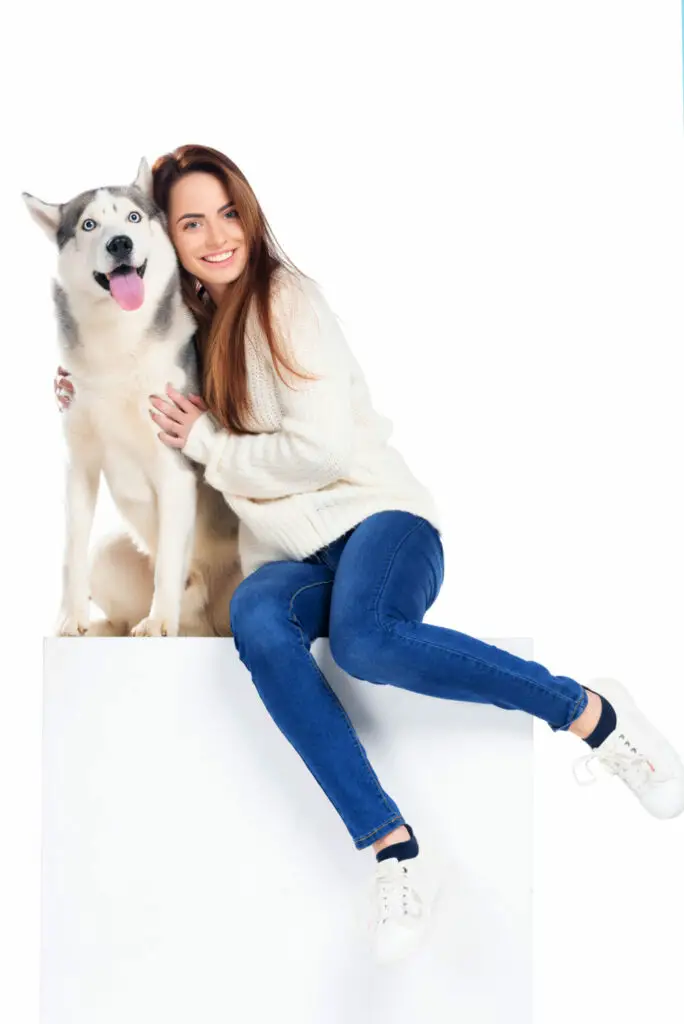
Unfortunately, your dog will surely try to swallow small bone splinters, which is where the problem starts. Also, some dogs will try to swallow pork bones as a whole since its smaller than beef.
When the pork bone splinters and your dog tries to swallow it, the following risks may ensue:
Mouth injuries
Bone splinters are sharp, and it can easily lacerate the gums and tongue of your dog. These open wounds will become pathways to infections, not to mention that it will also bleed profusely.
Aside from that, chewing pork bones can break your dogs teeth. This can lead to a slew of dental problems that will impact your pets ability to chew food.
Take note that these injuries will be much worse for small breeds. This is because their small mouths are susceptible to damage if they try to gnaw down a pork bone.
Dog owners also complain about excessive drooling whenever they give pork bone to their dogs. This can make your home smelly and your dogs face filthy.
Bowel obstruction
If theres one life-threatening risk of ingesting pork bone among dogs, it would be a bowel obstruction. The small chunks of pork bone can accumulate inside your dogs intestine and create a solid blockage.
These pieces can get lodged to the point that the intestines cant push the bones on their own. And despite canines strong digestive juices, theres no way for them to break down bones.
Due to this blockage, food wont be able to take its due course inside your pets stomach. This can turn into a veterinary emergency within 24 to 48 hours.
Aside from blocking food and bowel movement, the accumulation of pork bones in your dogs tummy will also restrict blood flow. This can lead to organ failure, which is extremely lethal.
Your dog likely suffers from bowel obstruction if its bloated, vomiting, hunching, and getting dehydrated. Diarrhea and loss of appetite are also general symptoms.
Its important to seek immediate veterinary care if you suspect that a pork bone is obstructing your dogs intestines. If the bone doesnt pass on its own, the veterinarian will need to perform surgical removal of the bone splinters.
Stomach perforation
Pork bones can also cause stomach perforation in your dog when ingested in splinters. This is extremely life-threatening as the perforation will allow digestive fluids to leak outside the stomach.
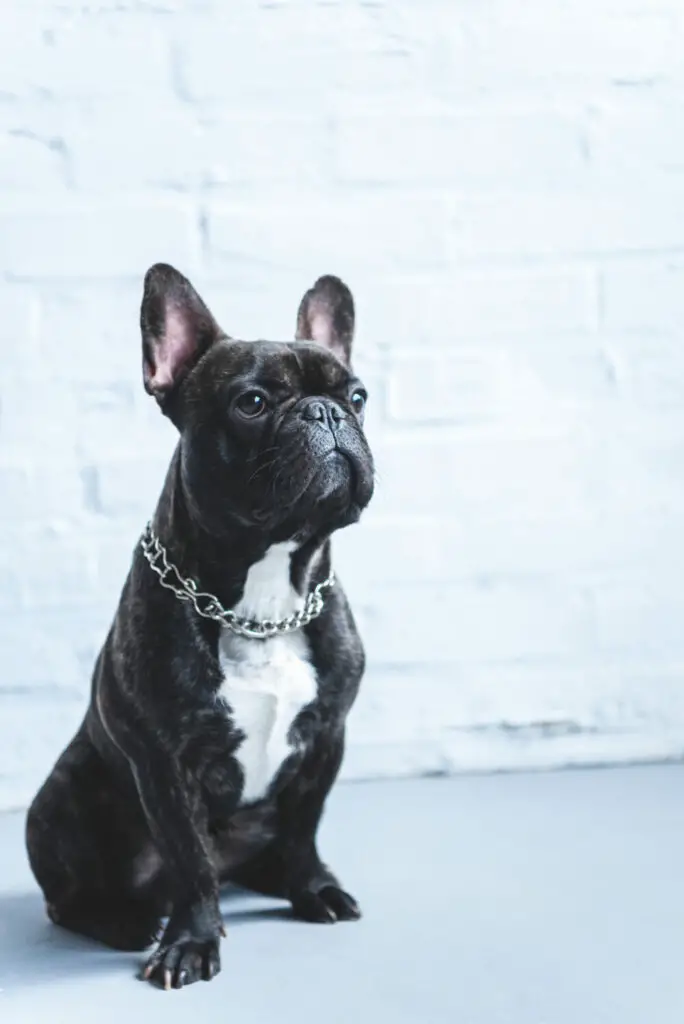
Aside from that, toxic substances will enter your dogs stomach. This can lead to sepsis, which is another life-threatening condition.Dogs suffering from stomach perforation will experience severe diarrhea, vomiting, and abdominal pain. It can also trigger regurgitation, canine respiratory distress, and distention.
Take note that perforations can also occur in your dogs intestines, colon, and esophagus. Technically, the pork bone splinter can damage every part of your dogs digestive path.
Moreover, treatment for stomach perforation will mainly focus on keeping your dogs condition stable. Once your dog is stable, the vet will proceed with surgery.
The surgical procedure is intended to remove the pork bone splinter. The vet will also close the perforations to prevent further infections from occurring.
Pancreatitis
Unlike the previous risks discussed above, canine pancreatitis occurs slowly as your dog regularly consumes pork bone marrow. This condition is also attributed to a diet filled with high-fat food, including bacon offcuts, sausages, and so on.
Depending on your pets overall diet, the onset of pancreatitis will occur within months. It will be much faster if you give your dog pork bones on a daily basis.
Take note that pancreatitis is a serious condition that can become life-threatening if not treated right away.
Gastroenteritis
Old pork bones left lying around will introduce various bacteria to your dogs digestive system. Some of which are E. coli and Salmonella, known to trigger adverse digestive upset.
Pair this with the high-fat content of pork bones, and your pet is bound to suffer from a bad case of canine gastroenteritis. Nevertheless, this will only happen if your dog consumes pork bones on a regular basis.
What should I do if my dog ate pork bones?
If your dog unintentionally consumed pork bones, you have to perform the following steps:
Observe your dog
The first thing you should do upon confirming the bone ingestion is to check your dog. Perform a physical examination of its mouth to see if there are injuries.
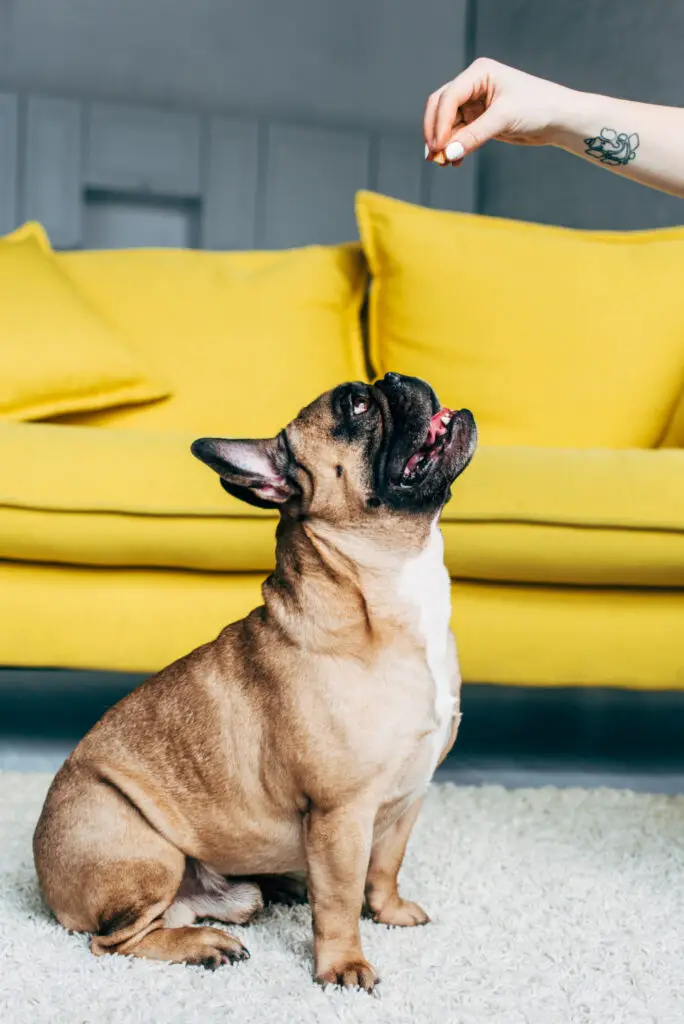
Also, you should observe your dogs behavior. If its lethargic, hunching, and nauseous, you need to involve the vet in the situation.While trying to reach the vet, make sure that you remove any remaining pieces. Remember that dogs dont know whats bad for them, and they could keep munching on the bone.
Call the vet
If your dog exhibits adverse symptoms, you should call the vet as soon as possible. This is much so if your dog ingested large amounts of pork bone splinters.
Its important to give as much information as possible to your dogs vet. You should mention your dogs breed, size, any lingering health problems, and the time when the bone was ingested.
All this information will help the veterinarian assist you in providing first aid. However, if your dogs condition is getting worse by the minute, its wiser to rush the canine to the clinic.
Never induce vomiting
You should never induce vomiting if your dog ingested pork bone splinters. Unlike in poisoning, inducing vomiting with pork bone ingestion can lead to more problems.
The regurgitation of the bone splinters can cause more perforations in the intestines, stomach, and esophagus. Also, forcing your dog to vomit may lodge the bones in a more life-threatening manner.
Its best to leave the bone alone and let the vet do the treatment. Most of the time, it will require an X-ray to see where the bone splinters are.
Can I still feed pork bones to my dog?
Pork bones are rich in calcium and phosphorus, which are beneficial for your dog. So if you wish to give bones to your dog, here are important reminders you should know:
- Grind it first. You should always grind pork bones before giving them to your dog. This way, there would be no splinters that could injure the dog, and absorption would be much faster.
- Give it sparingly. Since pork bone marrow is high in fat, you should only give it once a week. For dogs prone to gastroenteritis, once a month would be the safest.
- Deworm your dog regularly. Regular consumption of pork bones will also increase your dogs risk of contracting worms. This is why you should deworm your adult dog once every quarter.
- Boil it to make broth. Instead of giving the bone to your dog, you can boil it to create a broth. You can add warm broth to your pets meal to improve its flavor and provide a punch of nutrients.
- Consult the vet. Its also important to consult your dogs vet before giving dog bones. The veterinarian can also advise you about the right bone to give your dog and the proper way of doing so.
How long will it take a dog to digest a pork bone?
Dogs cannot digest large bone splinters. While they can break down a small amount of bone components, theres no way for your pet to digest the pork bone it ingested fully.
This is also the reason why intestinal blockages can occur if your canine swallowed pork bone splinters.
Overall, dogs can only digest soft bones from chicken, turkey, and lamb. But when it comes to large and stiff pork bones, it poses more risks than benefits.
How long will it take my dog to pass a pork bone?
It can take an adult dog around 8 to 12 hours to pass the bone it ingested. This is about the same period as to how long a dog takes to pass a squeaker.
But if your dog isnt passing the pork bone, it probably got lodged on the stomach or intestines. You should bring your dog to the vet in this case, especially if your pet isnt defecating as it should.
Conclusion
What would happen if my dog ate a pork bone? In some cases, your dog will pass it through stool.
However, theres also a possibility that the bone can injure the digestive system. As a result, it can also lead to blockages that require immediate veterinary attention.
Due to these established risks, you should avoid giving whole pork bones to your dog. Grinding it or boiling it into a broth are much better methods.

